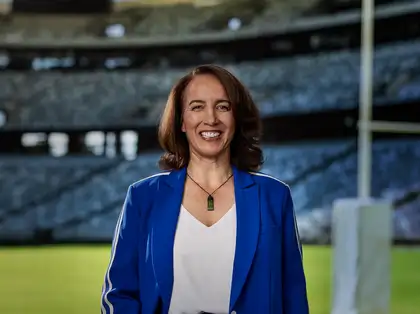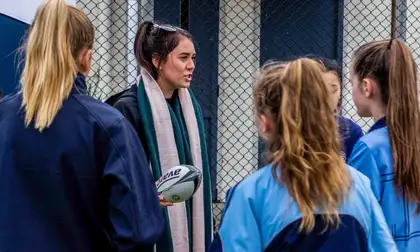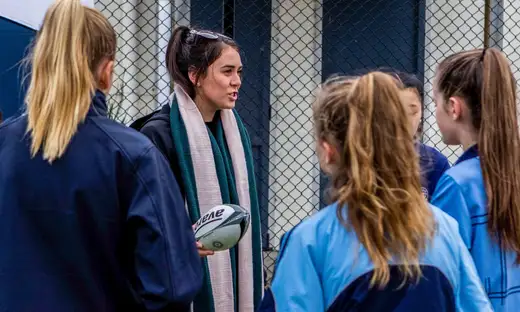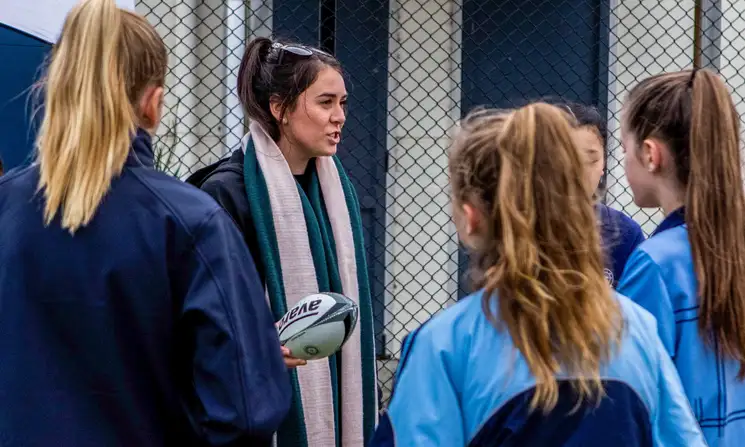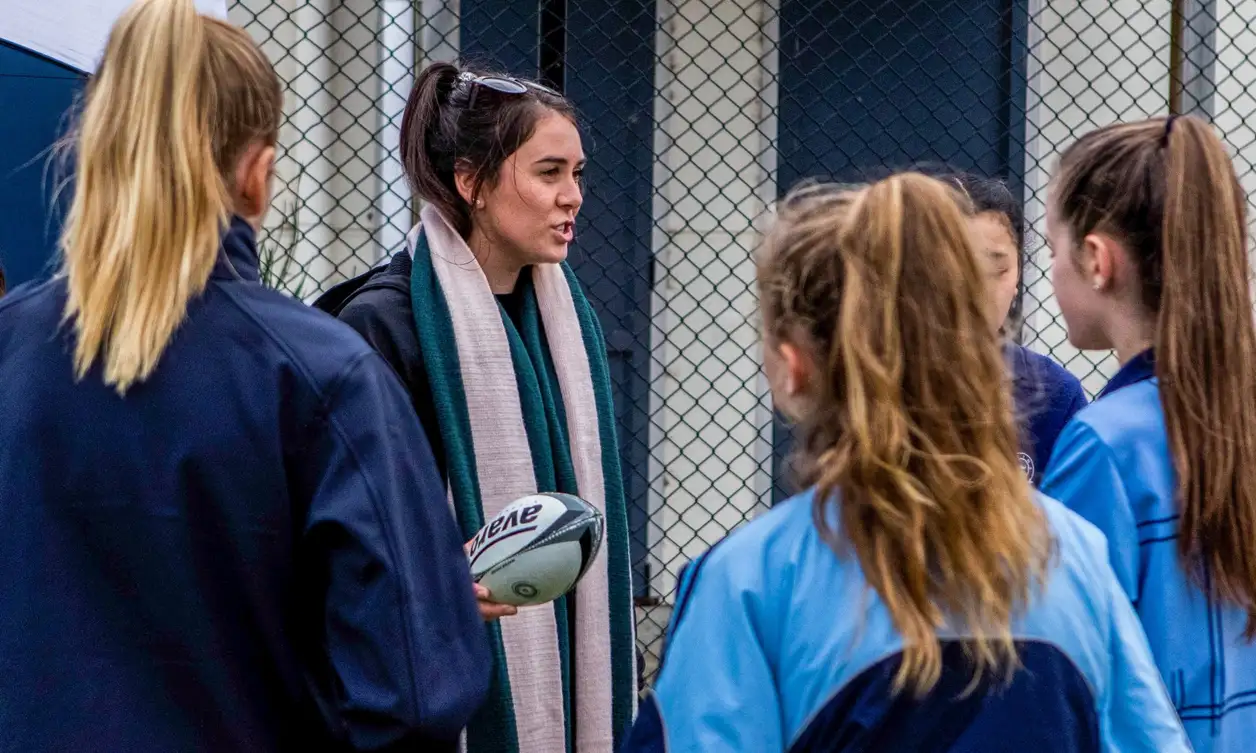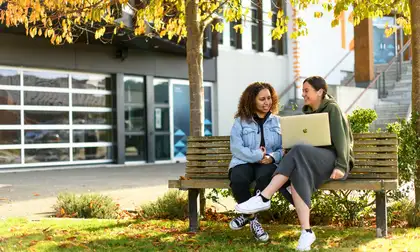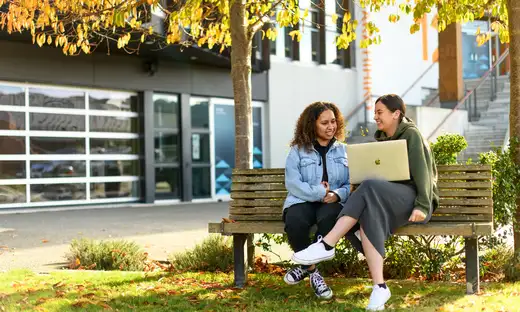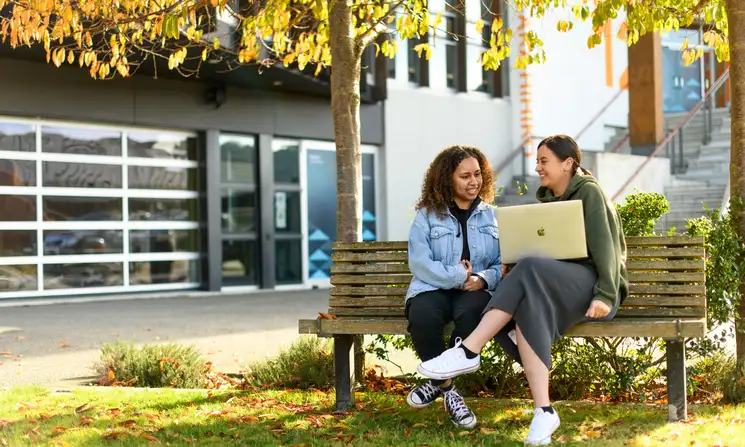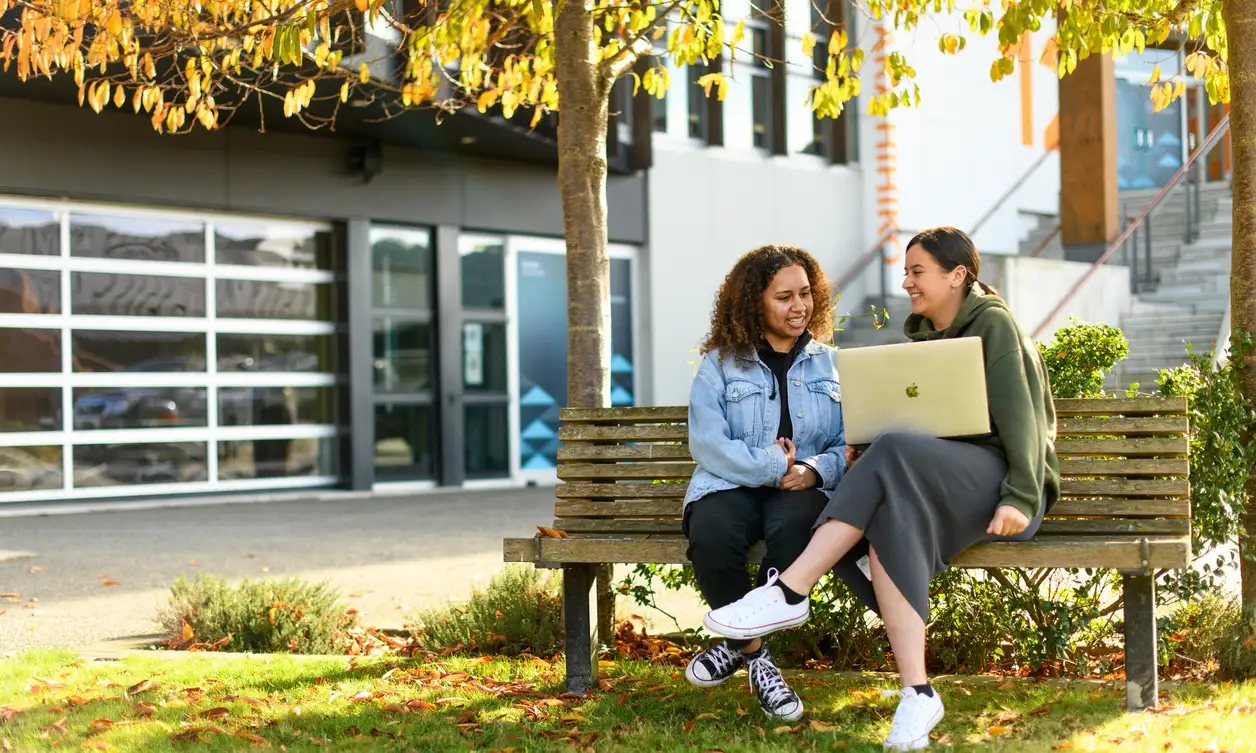Tēnā koe Farah, thank you kindly for joining us today. Could you share your journey of how you came to Massey?
I was attracted to the mahi at Massey as it was in the area of sport and exercise. They had just built the Sport and Rugby Institute – a hub of research around rugby, which I was very passionate about.
I come from a small rural area in the King Country, so I loved the Manawatū campus. I loved that it was a city, but not too big, with a lot going on in the community. I have gone through various roles in the university. Massey has been a great fit for me.
You were actively involved with the New Zealand Black Ferns when you started out. How did you balance your various roles while supporting your professional growth?
Massey was very accommodating of my commitments with the Black Ferns. I started teaching sport and management but then I had 2 children. On maternity leave, I was trying to figure out, ‘What am I, who am I and what am I doing?’ I'm no longer a rugby player; I'm retired – 'is this what I want to do?’
Then, I was offered an opportunity to teach leadership and teamwork and stay within the School of Management. This was another great opportunity for me to develop my career and become an expert in areas related to my sporting background.
Applying that kind of practical experience to my teaching always resonated with me. You know, you can be very much in that theory, but it's great if you can actually show the students how you can apply it. Then I joined the New Zealand Rugby Board, which marked the next phase of my life outside of Massey. Once again, Massey was accommodating of that.
You’re currently our Pou Ākonga Executive Director Māori Student Success. What does this role entail and how does Massey cater to the needs of Māori students?
I oversee a dedicated team at the Te Rau Tauawhi Student Centre, providing pastoral and academic support for Māori students. We have Kaitautoko Māori in each college who collaborate with course coordinators and lecturers to enhance Māori student success.
We also work with hauora teams to improve recruitment, retention and development. Notably, we've seen an increase in students who are first language te reo Māori speakers. In response, we revised the enrolment process to allow students to indicate their preferred language, enabling better communication and support.
Most of our Māori students study by distance, often part-time, which raises the challenge of fostering a sense of whanaungatanga in an online environment. At Massey, we're leading the way by partnering with Māori support staff to help 100-level students feel connected and comfortable discussing their challenges. We want them to feel like they have someone to connect with, someone they might feel more comfortable talking to about their struggles than they would with the course coordinator.
Your position is on an executive level. How do you ensure you’re connected with the students’ wants and needs?
This year, I decided to return to kanohi ki te kanohi (face-to-face) teaching in my original focus: sport and sociology. It’s been a rewarding experience, though a bit of a shock to my system. I love learning about today’s students – their needs, engagement and trends – to enhance their learning effectively.
With those student cohorts constantly evolving and changing, what then would be your approach to teaching?
I can provide them with plenty of practical examples of how some of the more abstract concepts we discuss in class apply to real life. For instance, I invited sports historian Associate Professor Jeff Watson to talk about social class in New Zealand society through sport. Professor Sarah Leberman, a strong advocate for women in sport, came in to discuss gender issues within sports. Associate Professor Bevan Erueti has conducted extensive research on the Olympic movement and how it has embraced Te Ao Māori. I’ve also incorporated references to the provisions of Te Tiriti o Waitangi in my teaching approach.
I aim to utilise all the incredible people we have at Massey in that one course, demonstrating the diverse opportunities available to them and taking the learning beyond the theoretical.
What excites you about the future?
Great question! I'm passionate about our work in the Te Tiriti space, though I don’t consider myself an expert. While I may not be the best player, I excel at bringing teams together and helping others recognise and build on their strengths.
I believe everyone leads in their own way and it’s crucial to focus on strengths rather than limitations. Pouring too much energy into weaknesses can hinder growth. My goal is to uplift my team and help us all advance. As I finish my time on the New Zealand Rugby Board after 7 years, I’m reflecting on my experiences. I’m excited to be in the Office of the Deputy Vice-Chancellor Māori, working alongside Professor Meihana Durie and Associate Professor Hone Morris, who recently submitted his PhD on the history of the Manawatū area.
